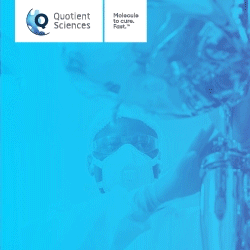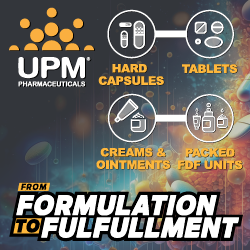Abeona Therapeutics Announces Licensing of the AIM Next-Generation AAV Gene Therapy Vector Platform
Abeona Therapeutics Inc. recently announced the exclusive worldwide license of a next-generation gene therapy AAV capsid portfolio from University of North Carolina at Chapel Hill. The AIM vector system is a next-generation platform of AAV capsids capable of widespread central nervous system gene transfer and can be used to confer high transduction efficiency for various therapeutic indications. Studies indicate that AIM vectors can efficiently and broadly target CNS tissue, and may provide a treatment for patients that have inhibitory antibodies to natural AAV serotypes. Importantly, the AIM vector system may provide second-generation treatment approaches for patients that have received a previous AAV injection.
“As we continue to build out our orphan and rare disease drug portfolio and move additional programs into the clinic, this agreement with UNC continues the execution of our strategy to combine our expertise in advancing gene therapy programs with the development of a next-generation proprietary AAV vector platform,” stated Steven H. Rouhandeh, Executive Chairman. “We look forward to harnessing the clinical utility and therapeutic potential of the AIM vector system technology platform to address a broad range of rare genetic diseases.”
In addition to the AAV capsid library, the license also adds ABO-202, an AAV-based CLN1 program, to Abeona’s Batten pipeline. ABO-202, developed at UNC by Steven Gray, PhD, with the support of The Saoirse Foundation, Taylor’s Tale, Hayden’s Batten Disease Foundation, and the Batten Disease Support and Research Association, is anticipated to enter clinical trials in 2017 for patients with infantile neuronal ceroid lipofuscinosis (INCL, infantile Batten disease), an inherited fatal genetic disease that primarily affects the nervous system.
“ABO-202 has shown promising preclinical efficacy in INCL mice after delivery of a functioning copy of the CLN1 gene to cells of the central nervous system, by extending survival and preserving strength when administered early in the disease course,” noted Steven J. Gray, PhD, Assistant Professor, Department of Ophthalmology, Gene Therapy Center, University of North Carolina at Chapel Hill. “Our work in developing these novel, next-generation AAV gene therapy vectors have the potential to further advance the field of AAV-based technologies by efficiently and specifically targeting the CNS, with a likelihood of avoiding antibodies endogenously generated by natural AAV serotypes.”
“The AIM vector system is a next-generation AAV-based gene therapy technology platform that represents a transformational opportunity for Abeona. The AIM platform will allow us to leverage our current pipeline into second- generation products for CNS and other tissue-specific delivery, and help provide an answer for patients that have existing inhibitory antibodies,” added Timothy J. Miller, PhD, President & CEO. “In addition, we add another AAV-based product ABO-202 (AAV-CLN1) for treatment of patients with infantile neuronal ceroid lipofuscinosis (INCL), which builds on our expertise in developing treatments for patients with forms of Batten disease.”
Abeona Therapeutics, Inc. is a clinical-stage company developing gene and plasma-based therapies for life-threatening rare genetic diseases. Abeona’s lead programs are ABO-102 (AAV-SGSH) and ABO-101 (AAV-NAGLU), adeno-associated virus (AAV)-based gene therapies for Sanfilippo syndrome (MPS IIIA and IIIB), respectively. Abeona is also developing EB-101 (gene-corrected skin grafts) for recessive dystrophic epidermolysis bullosa (RDEB), ABO-201 (AAV-CLN3) gene therapy for juvenile Batten disease (JNCL); ABO-202 (AAV-CLN1) gene therapy for treatment of infantile Batten disease (INCL), and ABO-301 (AAV-FANCC) for Fanconi anemia (FA) disorder using a novel CRISPR/Cas9-based gene-editing approach to gene therapy for rare blood diseases. In addition, Abeona has a plasma-based protein therapy pipeline, including SDF Alpha (alpha-1 protease inhibitor) for inherited COPD, using our proprietary SDF (Salt Diafiltration) ethanol-free process. For more information, visit www.abeonatherapeutics.com.
Total Page Views: 3711












